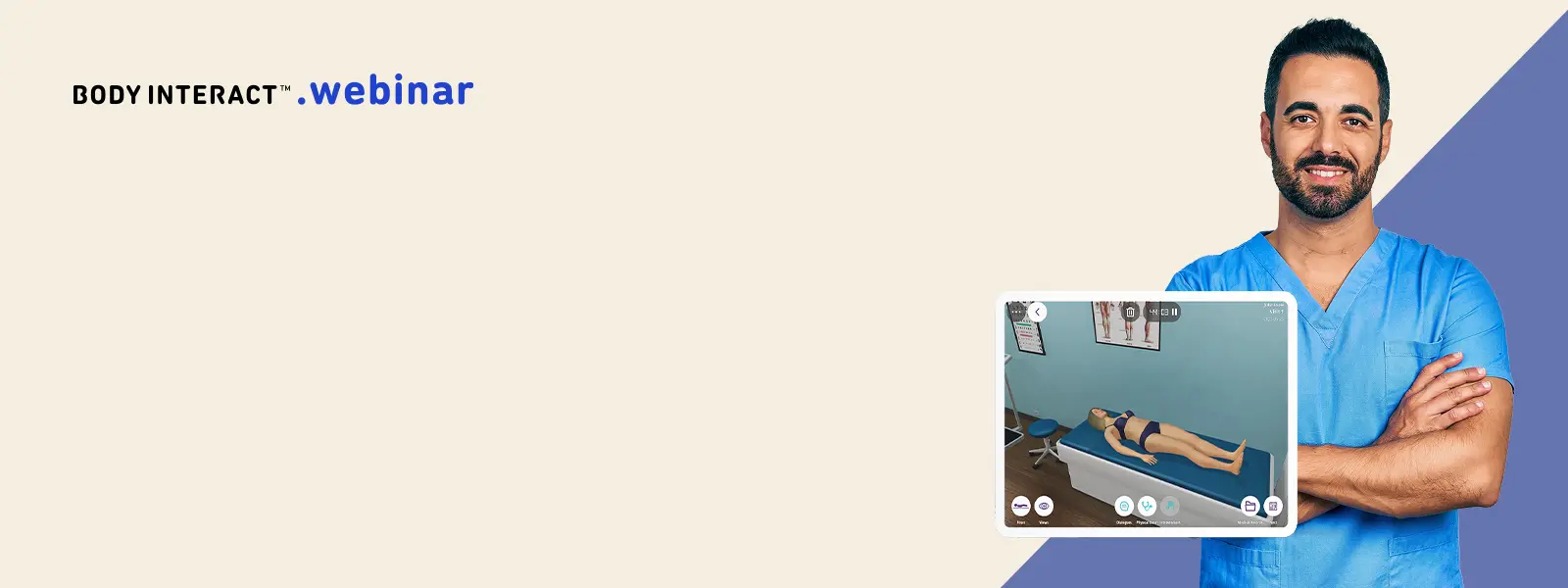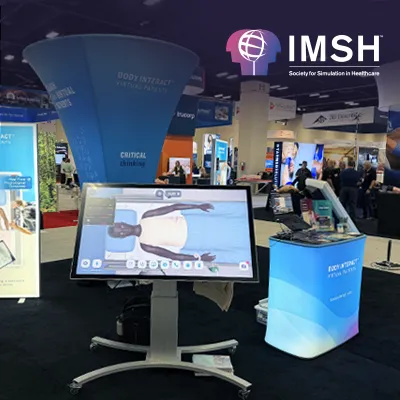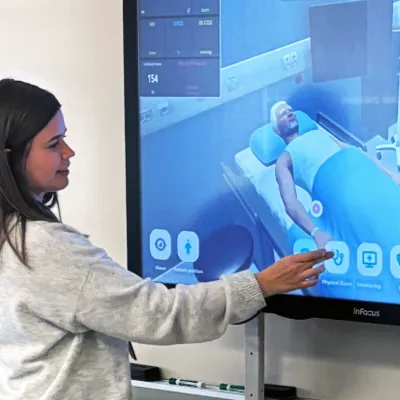Physiotherapy Education with Virtual Patients
Simulation-based training has gained popularity in healthcare professions, including physiotherapy, as it provides a safe and controlled environment for students, clinicians, and researchers to develop and refine their skills without potential harm to patients. It offers a valuable educational tool that complements traditional classroom learning and clinical experiences. It bridges the gap between theory and practice while ensuring patient safety and promoting optimal care.
Simulation-based training
In recent years, the field of physiotherapy has witnessed a remarkable transformation, thanks to technological advancements. One of the most significant ones is the integration of Virtual Patients into education and training programs.
With Body Interact – Virtual Patient Simulator – learners can practice a wide range of skills. Including therapeutic exercises, balance training and gait analysis, Kinetic coordination, and facial motor assessment. Students can also have the benefit of encountering real scenarios like in real life.
To shed light on this groundbreaking approach, we counted on the unevaluable testimonial of two experts in Physiotherapy education.
Promote patient interaction and students’ responsibility
Unveiling the Potential of Virtual Patients
Traditional Physiotherapy education relied heavily on lectures, textbooks, and limited clinical exposure. However, with the advent of virtual patients, educators can simulate real-life scenarios, offering students a unique opportunity to apply their knowledge in a risk-free environment.
Body Interact gives the opportunity to enhance critical thinking and decision-making skills among physiotherapy students.
Bridge the gap between Theory and Practice
One of the biggest challenges has been bridging the gap between theory and practice. Virtual patients represent the solution that brings the classroom to life through a more engaging, immersive, and interactive experience.
Learners will be allowed to practice assessing, diagnosing, and treating a diverse range of conditions, preparing them for real-world patient interactions.
Enhancing Clinical Reasoning
Clinical reasoning is a crucial skill that every physiotherapist must possess. By working through virtual case studies, learners can develop clinical thinking skills, learn to analyze patient histories, interpret diagnostic data, and make informed decisions about treatment plans.
Building empathy and communication skills
In addition to clinical expertise, successful physiotherapists must be able to connect with patients on an emotional level. Virtual patients provide a unique opportunity to develop and practice empathy and communication skills while understanding the psychological and emotional aspects of patient care. It allows learners to cultivate a patient-centered approach for their future practice.
Review Body Interact webinar on Physiotherapy Education
Professor Beatriz Martinez is a Physiotherapy professor at Universidad Europea since 2006. She is currently the Academic Director at the Sport Sciences and Physiotherapy School, an activity that she combines with teaching, research, and clinic.
With a Ph.D. in Health Sciences since 2019, she has been teaching undergraduate and graduate classes for the last 15 years in her field of expertise – physiotherapy linked to women’s health.
Professor Alice Carvalhais is an expert in the muscular-skeletal field and has dedicated her career to conducting research specifically focused on women’s health. Despite having had a brief, but impactful contact with Body Interact, Professor Alice has recognized the incredible potential of Virtual Patient Simulation to enhance physiotherapy education.
Introduce Virtual Patients in Physiotherapy Education. Understand how simulation-based training can foster learners’ assessment, diagnostic, and treatment skills.
Schedule a meeting with the Body Interact team to learn more.
By Carolina Ferreira – Customer Trainer | Registered Nurse









